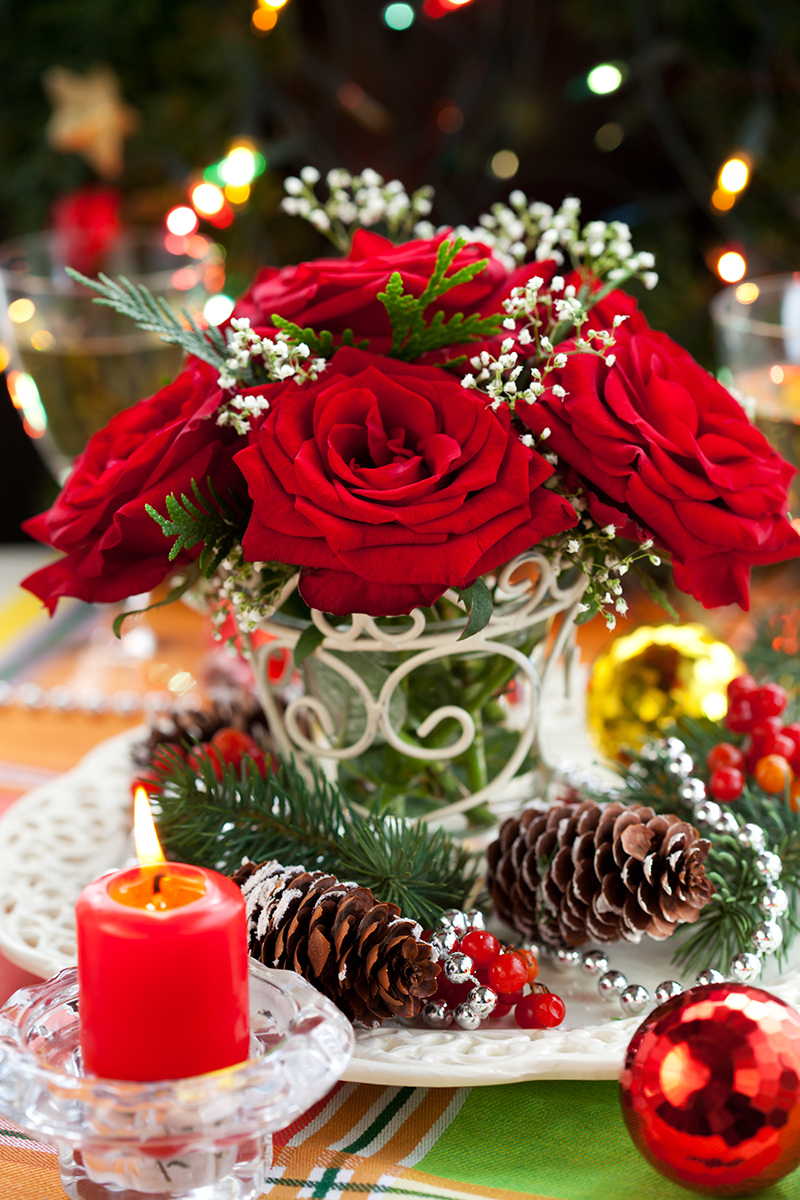Meaningful insights into birth month flowers and their symbolism
Posted on 18/08/2025
Meaningful Insights Into Birth Month Flowers and Their Symbolism
Flowers have enchanted humankind for centuries, with each bloom carrying its own unique beauty, fragrance, and story. Birth month flowers are a delightful tradition, gifting each month a specific flower and imbuing it with special symbolism. Just as birthstones serve as personalized good luck charms, birth month flowers embody the traits, hopes, and emotions associated with a person's birth month. Understanding the language of flowers--often called floriography--can add deeper meaning to your garden, gifts, or even your own sense of identity.
In this comprehensive guide, we'll explore the significance of birth month flowers, learn about each month's unique blooms, and discover how their symbolism can convey heartfelt messages or reflect our personalities. Whether you're seeking the perfect birthday bouquet or curious about your own birth month blossom, these meaningful insights into birth month flowers and their symbolism will leave you inspired.

What Are Birth Month Flowers?
Birth month flowers assign a specific flower to each month of the year--similar to the tradition of birthstones. This concept dates back centuries, with roots in Roman, Greek, and ancient English cultures. Each birth flower has developed symbolic meanings drawn from mythology, horticulture, literature, and folk traditions.
- Birth month flowers serve as personalized emblems for each month, much like zodiac signs or gemstones.
- They make thoughtful, symbolic gifts for birthdays and anniversaries.
- Each flower's meaning reflects qualities or aspirations for those born in that month.
- The tradition varies slightly by region, but the most widely recognized list comes from the Victorian era in England.
Understanding what each birth month flower symbolizes can enrich personal celebrations, holiday traditions, and even floral arrangements for special occasions. Let's take a closer look at these enchanting blooms.
Monthly Breakdown: Birth Month Flowers and Symbolism
January: Carnation & Snowdrop
Carnations are the primary birth flower for January--bright, frilly blooms that thrive in cool weather. Their symbolism includes love, fascination, and distinction. Different colors of carnations represent various emotions:
- Red: Deep love and admiration
- Pink: Motherly love and gratitude
- White: Purity and luck
The secondary birth month flower, snowdrop, is one of the first flowers to bloom in winter. It stands for hope and new beginnings, signaling the end of the coldest days.
February: Violet & Primrose
Despite being the coldest month in many places, February's flowers are all about modesty, loyalty, and unchanging love. Violets are delicate blooms with a heart-shaped leaf--a symbol of devotion and faithfulness. Meanwhile, primroses signify young love and renewal.
March: Daffodil
Daffodils are the first bright signs of spring, bursting forth with their joyful yellow trumpets. The March birth flower symbolizes rebirth, new beginnings, and hope, making it the perfect flower for those born at the dawn of the season. Gifting daffodils is said to bring good fortune for the coming year.
April: Daisy & Sweet Pea
With their innocent appearance, daisies represent purity, innocence, and loyal love. Another April birth month flower, the sweet pea, expresses delicate pleasure and gratitude. Historically, sweet peas were given as tokens of thanks and farewell.
May: Lily of the Valley & Hawthorn
Lily of the Valley is cherished for its enchanting fragrance and tiny bell-shaped flowers. The May birth flower stands for humility, sweetness, and a return to happiness. In contrast, the hawthorn blossom represents hope and supreme happiness, making May's flowers a double dose of positivity.
June: Rose & Honeysuckle
The eternal rose is June's star, symbolizing love, passion, and beauty. Each color carries its own nuance:
- Red: True love and respect
- White: Purity and new beginnings
- Yellow: Friendship and joy
- Pink: Gratitude and admiration
Honeysuckle, June's second birth flower, denotes the bonds of love, happiness, and sweet devotion.
July: Larkspur & Water Lily
Larkspur blooms in shades of blue, pink, white, and purple. It's associated with positivity, dignity, and open heartedness. Each color has its own message:
- Purple: First love
- White: Joyful recollection
- Pink: Fickleness, or contrasting emotions
Water lilies--symbolizing purity and enlightenment--are also linked to July.
August: Gladiolus & Poppy
Gladiolus flowers evoke strength of character, moral integrity, and remembrance. Their sword-like leaves and tall flower spikes embody honor and determination. Poppies, August's other flower, are associated with imagination, eternal sleep, and consolation.
September: Aster & Morning Glory
Asters look like cheerful stars and symbolize wisdom, courage, and faith. They were once believed to chase away wicked spirits. Morning glories bloom early and are fleeting, representing affection, love, and the fleeting nature of life.
October: Marigold & Cosmos
Marigolds stand for warmth, creativity, and passion. Their golden color evokes the essence of autumn's sunlight. Cosmos represent peace, order, and harmony, offering a sense of tranquility even as the seasons change.
November: Chrysanthemum
The chrysanthemum--or "mum"--is a symbol of joy, friendship, and long life. In some cultures, white chrysanthemums represent truth and honesty, while red chrysanthemums signify love and yellow ones are often given in friendship.
December: Narcissus & Holly
Narcissus (often portrayed as the paperwhite or daffodil) is December's main birth flower, associated with hope, good wishes, and rebirth. Holly, with its festive berries and evergreen leaves, symbolizes protection, domestic happiness, and peace.
How to Use Birth Month Flower Symbolism in Everyday Life
Incorporating the meanings of birth month flowers into your life can make daily experiences more beautiful and meaningful. Here are some practical and creative ways to use floral symbolism:
- Bouquets & Gifts: Tailor birthday bouquets with a person's birth flower for a thoughtful and symbolic gesture.
- Gardening: Plant your birth month flowers in your garden as a tribute to your birth and personality.
- Celebrations: Feature birth month flowers in wedding bouquets, centerpieces, or baby showers for added sentimental value.
- Jewelry & Accessories: Seek out jewelry or home decor accents featuring your birth flower for a personal touch.
- Art & Craft: Incorporate birth flower imagery into artwork, journal covers, or embroidery for unique keepsakes.
The Symbolism of Birth Month Flowers Across Cultures
Floral symbolism is global, and each region or culture might interpret flower meanings differently:
- In Victorian England, floriography (the language of flowers) became a popular way to send secret messages through bouquets, with birth flowers holding particular significance for birthdays and anniversaries.
- In Japan, the tradition of hanakotoba attributes unique meanings to flowers, and some birth flowers overlap with Western lists but carry different symbolism.
- In the United States, many people observe the Victorian list but might tweak the flowers to fit local blooms.
- In other cultures, birth month flowers may entwine with religious, seasonal, or agricultural practices, influencing the meanings.
Birth Month Flower Symbolism and Personality Traits
Many believe that your birth flower's characteristics reveal something special about your own personality.
- January (Carnation/Snowdrop): Tenacious, loving, hopeful in adversity
- February (Violet/Primrose): Loyal, humble, romantic
- March (Daffodil): Optimistic, energetic, a breath of fresh air
- April (Daisy/Sweet Pea): Cheerful, honest, grateful
- May (Lily of the Valley/Hawthorn): Sweet-natured, gentle, optimistic
- June (Rose/Honeysuckle): Passionate, warm-hearted, expressive
- July (Larkspur/Water Lily): Open-hearted, creative, loyal
- August (Gladiolus/Poppy): Confident, imaginative, steadfast
- September (Aster/Morning Glory): Wise, resilient, affectionate
- October (Marigold/Cosmos): Bold, creative, harmonious
- November (Chrysanthemum): Joyful, friendly, honest
- December (Narcissus/Holly): Hopeful, protective, generous
Of course, floral symbolism is just for fun and not a science--but it's fascinating how birth month flowers can mirror our own hopes and ideals.

Frequently Asked Questions About Birth Month Flowers
Can I have both primary and secondary birth month flowers?
Yes! Some months are associated with two birth flowers. Both are accepted, so you can choose based on personal preference, meaning, or local tradition.
Are birth month flowers the same as zodiac flowers?
No, but they often overlap. Zodiac flowers relate to astrological signs, while birth month flowers strictly follow calendar months.
What if my favorite flower isn't my birth month flower?
You're free to love any flower! The symbolism of birth month blooms adds depth, but all flowers can hold personal significance based on your experiences and preferences.
Conclusion: The Enduring Appeal of Birth Month Flower Symbolism
From carnations in January to narcissus in December, birth month flowers offer a timeless and enchanting way to celebrate individuality, honor loved ones, and connect with nature's cycles. Their symbolism carries messages of love, hope, resilience, and joy. By learning about your own birth flower and its meaning, you can add an extra layer of thoughtfulness to your celebrations or simply appreciate the deep-rooted traditions that connect us all through the language of flowers.
Delve into the world of birth month flowers and discover the unique symbolism your birth bloom holds. Whether given as a gift or enjoyed for yourself, these meaningful blossoms serve as a beautiful reminder of the special qualities we all bring into the world.
Latest Posts
Meaningful insights into birth month flowers and their symbolism
Reveal the Petal That Embodies Your True Nature
Mark a Birthday with Stunning Floral Surprises





